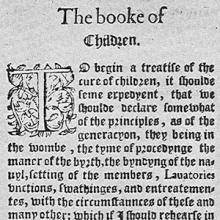Government
Minutes of Meeting of the PZRR CC Secretariat after Elections
In early June 1989, Poland held its first semi-free elections since the inception of Communism following the Second World War. In the first round of these elections, Poles exhibited strong anti-Communist and pro-Solidarity sentiments, surprising both sides.
Warsaw Embassy Cable, Election '89: Solidarity's Coming Election
In the following report, the American Ambassador to Poland (John R. Davis, Jr.) outlines possible outcomes of June 4 elections and what consequences might follow from each.
Czecholslovak Description of "Vltava-89" Exercise
Czechoslovak Defense Minister Milan Vaclavik wrote this report on the "Vltava-89" military training exercise conducted by Warsaw Pact forces in May 1989.
National Security Directive in Response to Polish Roundtable Agreement
Officials in the United States watched closely the historic roundtable talks that took place between Communist Party leaders and the opposition in Poland from February to April 1989.
Warsaw Embassy Cable on the Election of 1989
One of the most important agreements made by Communist officials and opposition leaders in Poland at the roundtable talks that took place in February through April 1989 was the decision to hold, for the first time, semi-free elections, in which half of the parliamentary seats would be freely cont
Report of Vadim Zagladin on his conversation with Chairman of the Czechoslovak
International relations specialist and key Gorbachev advisor Vadim Zagladin made this report to the Soviet Politburo in early April 1989. In it, Zagladin recounts his conversation with Jan Pudlak, a high-ranking Czechoslovak official, about the situation in Pudlak's country.
CIA Intelligence Assessment: Rising Political Instability Under Gorbachev
As President George H. W. Bush took office in January 1989, factions within his administration disagreed concerning the approach to take with regard to US-Soviet relations.
Legalization versus Re-legalization of NSZZ "Solidarity"
Formed in September 1980 in Poland and recognized as a legal union by Communist officials in November, Solidarity was formally dissolved by Communist leaders on October 8, 1982, and forced to function illegally and underground.
After the Wende: GDR Jokes D
George Orwell once wrote, "Every joke is a tiny revolution." In state-socialist societies that had (or have) totalitarian characteristics, individuals found clever ways to carve out areas of freedom for themselves.

Long Teaching Module: Children’s Health in Early Modern England
Children and youth in early modern England (1500-1800) were subject to many diseases and physical hardships.